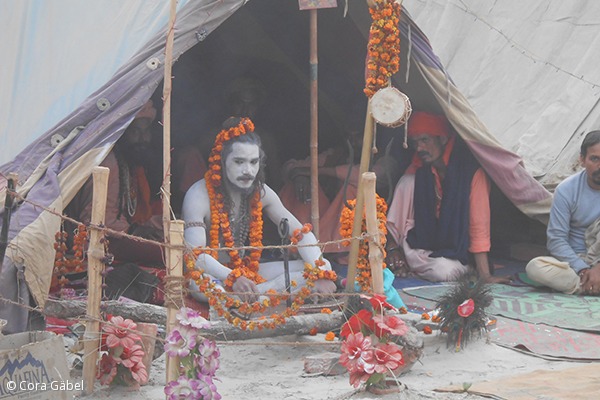What is Social and Cultural Anthropology?
What is cultural property and who owns a cultural heritage?
What effects do floods, forest fires or the exploitation of resources, such as illegal timber harvesting in Indonesia, have on the lives of indigenous communities, their economic practices, belief systems and identities?
To what extent do media like smart phones influence everyday life of people in East Asia, and what methods can be used to investigate culture-specific media practices?
What kind of moral obligations and social dependencies are associated with the exchange of gifts in different societies?
And how can we better understand and explain spatial mobility and transnational processes in the Global South? Can anthropologists contribute to the public debate on migration, flight and integration?
What Social and Culture Anthropology is about
Such questions are raised by anthropologists. Social and Cultural Anthropology is the science of human culture in general and individual cultures in particular. The term “culture” embodies the entirety of material and ideational expressions of human existence, ranging from objects and techniques to modes of economic operation and social forms of organization, to knowledge, religion, art and education – hence, the term’s scholarly usage transcends that of everyday language.
The field of Social and Cultural Anthropology is accordingly broad and diverse.

Anthropologists are above all interested in the culture of daily life and all kinds of cultural phenomena, processes and actions. It is assumed that individual cultural domains do not coexist in an unrelated way, but mutually influence one another and cannot be viewed appropriately without looking at the cultural whole of which they form a constituent part – that is, the interplay of institutions, behaviors, ideas and artefacts (holism). Moreover, these domains interact with non-cultural influences such as the prevailing natural environments or the biotic outfit of human beings.
As a child of the colonial era, Social and Cultural Anthropology first focused on small, rural, illiterate societies outside of Europe. These still remain of central importance, but in more recent times, urban and industrial societies have been increasingly spotlighted, just as one’s own society has become a vital theme.
Methods and Approaches
Contrary to some preconceptions, Social and Cultural Anthropology primarily investigates present-day phenomena, but to understand these it is often essential to know about their history. Ethno-history thus constitutes a well-established branch of the discipline. In principle, the endeavor is to depict and explain cultural phenomena in all places and at all times, with extensive local studies in contemporary societies carrying the most weight.
 The most important procedure employed in ethnographic research is ethnographic fieldwork – involving at least a one-year stay in the society being studied, as well as participant observation and active participation in its daily life as the backdrop for applying the actual (qualitative and quantitative) research methods. Fluency in the respective language is considered imperative to that end. Ethnologists use both hermeneutic (interpretive-understanding) and analytical (explanatory-reasoning) methods, with intercultural comparison also playing a major role. The contemplation of forms and conditions of ethnographic research has likewise been given broad scope in recent years.
The most important procedure employed in ethnographic research is ethnographic fieldwork – involving at least a one-year stay in the society being studied, as well as participant observation and active participation in its daily life as the backdrop for applying the actual (qualitative and quantitative) research methods. Fluency in the respective language is considered imperative to that end. Ethnologists use both hermeneutic (interpretive-understanding) and analytical (explanatory-reasoning) methods, with intercultural comparison also playing a major role. The contemplation of forms and conditions of ethnographic research has likewise been given broad scope in recent years.
Social and Cultural Anthropology seeks both to describe the particular manifestations of culture in specific societies (ethnography) and to arrive at overarching theoretical propositions for individual cultural spheres or culture as a whole (Social and Cultural Anthropology in the narrower sense). It is thereby important to initially refrain from any valuation and from making one’s own cultural perspective the measure of all things in dealing with the foreign (cultural relativism).
The self-critical reflection on the forms and conditions of ethnographic research and writing has also been widely accepted in recent years. Increasing mobility of people (migrants, refugees, exchange students) and transnational co-operation and networks (employees in international companies or religious, transnational networks) have challenged the ways of ethnographic exploration of global living environments. Today, anthologists must increasingly work in different places ('multi-sited ethnography').
Dissociation from other sciences
Cultural and Social Anthropology is distinguished from the neighboring disciplines of sociology, social psychology and ethnic studies (sometimes also called European Cultural and Social Anthropology or cultural studies) by its inclusion of non-Western societies and its emphasis on field research. Unlike history or prehistoric archaeology, its focus moreover is on the present. In contrast to disciplines such as psychology, educational science, geography, philology, political science, art history, musicology or religious studies and the like, Cultural and Social Anthropology takes a holistic perspective encompassing all cultural domains and attaches major importance to intensive local studies.
Finally, as a world-embracing science, Cultural and Social Anthropology transcends the regionally confined subject areas of such disciplines as African studies, Egyptology, Jewish studies, Indology, Semitic studies, Latin American history and European philologies, and tends to stress language and literature somewhat less.
Occupational Fields
Due to the processes of globalization and internationalization of the labor market and life, the importance and the need for knowledge of complex, socio-economic, political-religious and intercultural links are increasing.
A special strength of cultural and social anthropology is the mediation of intercultural sensitivity.
The study of the discipline qualifies for professional activities such as work in development cooperation, intercultural education or international and non-governmental organizations. Besides the classical fields “research, teaching and museum”, it also qualifies for a profession in areas such as cultural administration, consultancy and tourism, public relations, organizational and market research or positions in the social and media sector.
The key competencies acquired during the studies, for instance, critical handling with (scientific) texts, presentation techniques or well-trained analytical abilities which are useful for graduates and their later (professional) life after the university.
What is the Focus of the Department in Cologne?
 A typical feature of the Cologne Institute of Cultural and Social Anthropology, compared with other German institutes, is its enhanced socio-scientific orientation coupled with distinct theoretical interests, which are in turn guided by the Anglo-American notions of cultural and social anthropology. In Cologne, regional priority is given to Africa and Asia, although several of the Institute’s lecturers are specialized in other regions as well (e.g. India, South America and the Caribbean).
A typical feature of the Cologne Institute of Cultural and Social Anthropology, compared with other German institutes, is its enhanced socio-scientific orientation coupled with distinct theoretical interests, which are in turn guided by the Anglo-American notions of cultural and social anthropology. In Cologne, regional priority is given to Africa and Asia, although several of the Institute’s lecturers are specialized in other regions as well (e.g. India, South America and the Caribbean).
Courses such as "Ethnicity in Southeast Asia", "War and Conflict", "Anthropology and Environment", "Witchcraft in Africa" or "Youth and Masculinity" are intended to provide practical case studies. The analysis of problem areas and the development of solution strategies are of particular importance.
In addition, the study of cultural and social anthropology in Cologne has always attached great importance to a solid and varied methodological training in theory and practice. Therefore, the trainings of ethnographic methods in the bachelor and master programs take a central place in form of lectures (seminars, workshops) and field research internships in Germany and abroad.

 The most important procedure employed in ethnographic research is ethnographic fieldwork – involving at least a one-year stay in the society being studied, as well as participant observation and active participation in its daily life as the backdrop for applying the actual (qualitative and quantitative) research methods. Fluency in the respective language is considered imperative to that end. Ethnologists use both hermeneutic (interpretive-understanding) and analytical (explanatory-reasoning) methods, with intercultural comparison also playing a major role. The contemplation of forms and conditions of ethnographic research has likewise been given broad scope in recent years.
The most important procedure employed in ethnographic research is ethnographic fieldwork – involving at least a one-year stay in the society being studied, as well as participant observation and active participation in its daily life as the backdrop for applying the actual (qualitative and quantitative) research methods. Fluency in the respective language is considered imperative to that end. Ethnologists use both hermeneutic (interpretive-understanding) and analytical (explanatory-reasoning) methods, with intercultural comparison also playing a major role. The contemplation of forms and conditions of ethnographic research has likewise been given broad scope in recent years. A typical feature of the Cologne Institute of Cultural and Social Anthropology, compared with other German institutes, is its enhanced socio-scientific orientation coupled with distinct theoretical interests, which are in turn guided by the Anglo-American notions of cultural and social anthropology. In Cologne, regional priority is given to Africa and Asia, although several of the Institute’s lecturers are specialized in other regions as well (e.g. India, South America and the Caribbean).
A typical feature of the Cologne Institute of Cultural and Social Anthropology, compared with other German institutes, is its enhanced socio-scientific orientation coupled with distinct theoretical interests, which are in turn guided by the Anglo-American notions of cultural and social anthropology. In Cologne, regional priority is given to Africa and Asia, although several of the Institute’s lecturers are specialized in other regions as well (e.g. India, South America and the Caribbean).